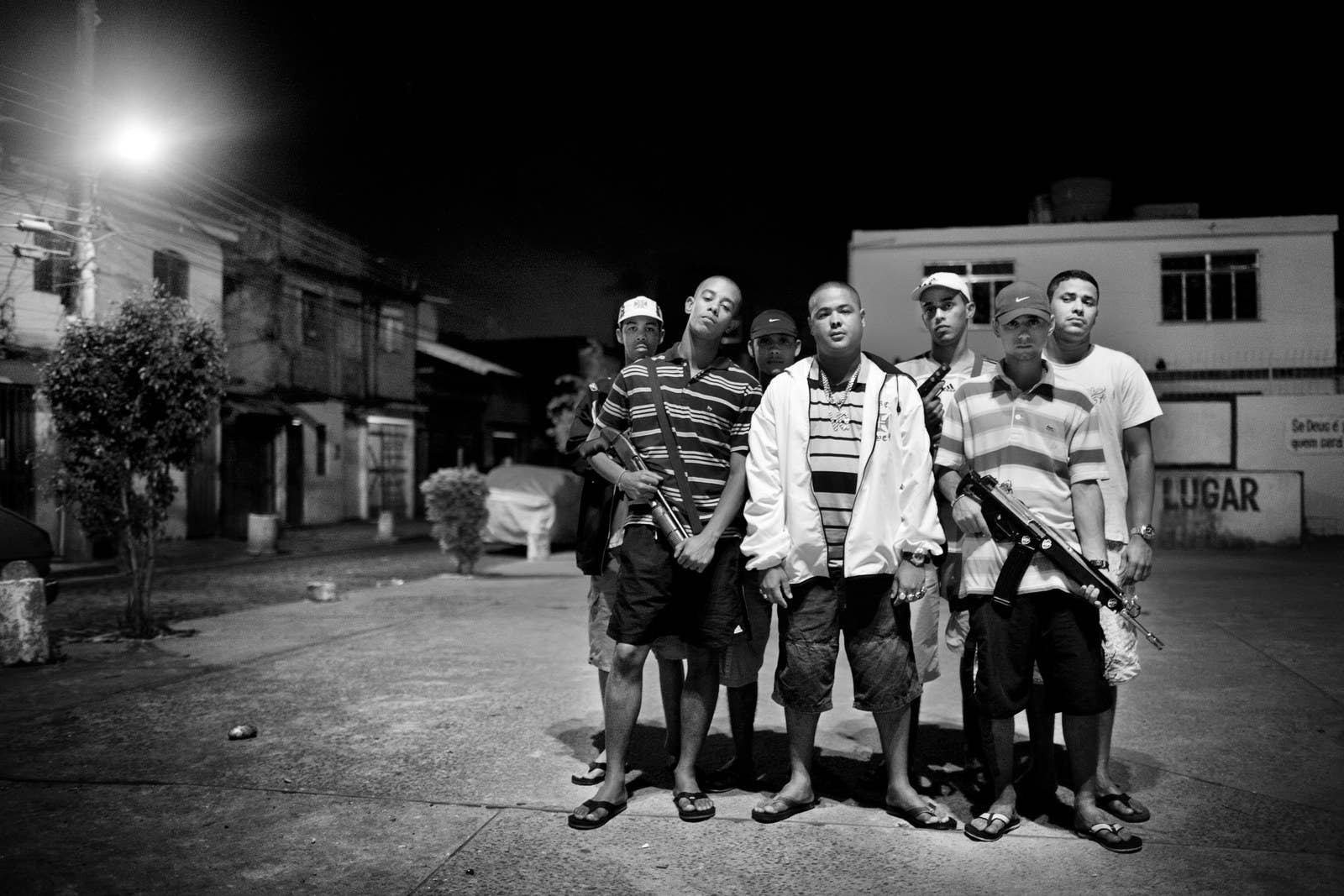
We spoke with João Pina, the photographer behind Gangland, a stunning series that caught our attention during Visura's open call for stories about Brazil. The country is in turmoil, with its economy suffering and its politics upended by the dismissal of President Dilma Rousseff over allegations of illegal accounting earlier this year. Numerous reports of pollution, violence, and incomplete projects led up to the Olympics.
Pina's work, which spans the last nine years, stands out for its elegant juxtapositions of violence and everyday life.
This interview has been edited and condensed for clarity.

What drew you to Rio?
It is the so-called Wonder City, and its a mirror of what's going on in Brazil. That is fascinating.
Has anything improved in the past few years since the World Cup?
There has been some improvement with infrastructure, but it's still far from where it should be. There are still issues with class and race. There is more political awareness since the World Cup, there is more outrage at inequality between class and race. Mothers have organized to talk about injustices. We will see how these changes affect society.
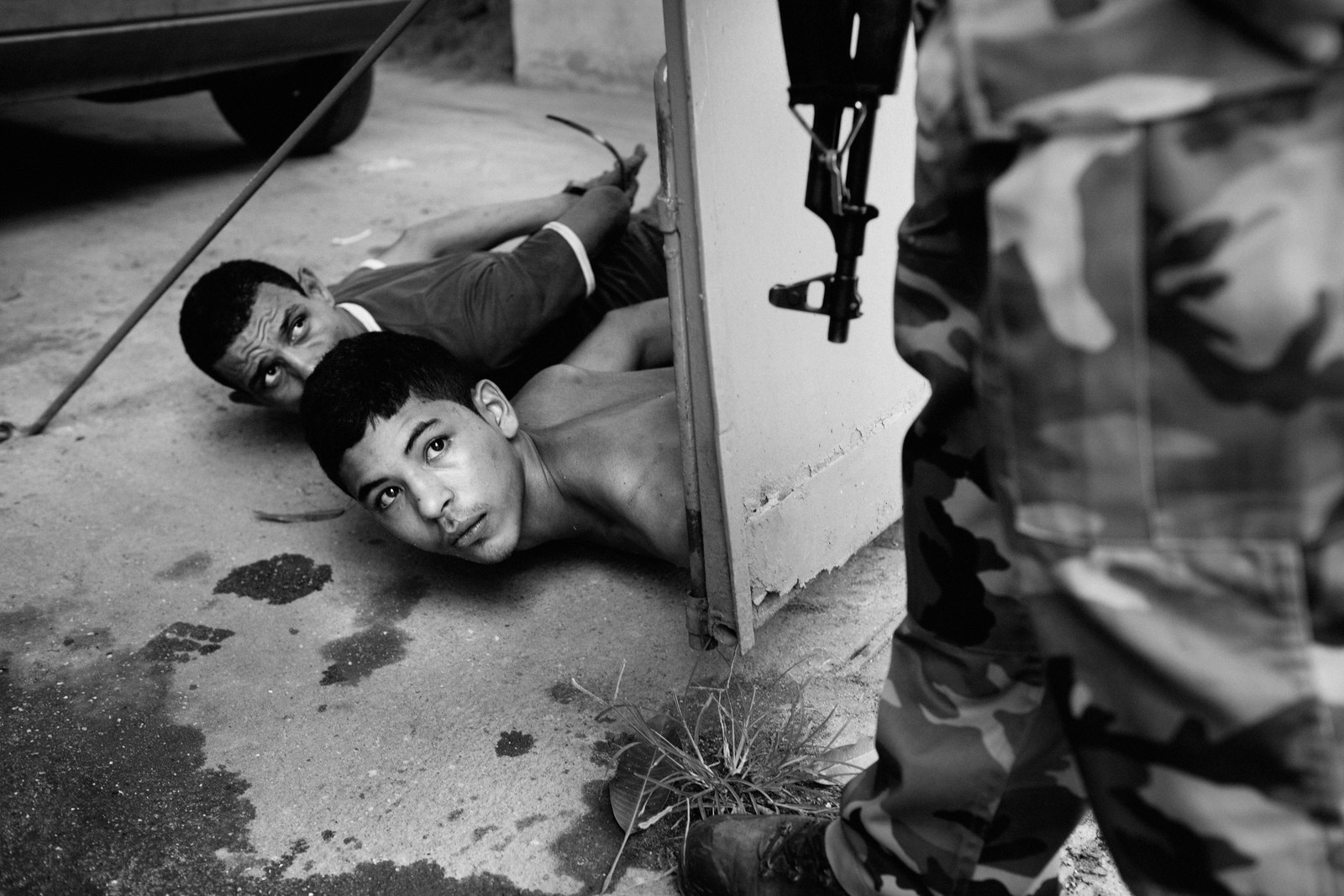
Is the pacification [the government initiative to clear drug traffickers from the favelas] still ongoing?
There is the widespread assumption that it has failed — there are still conflicts between gangs and cops. The so-called “pacification units” are police units, but now they are operating in the exact same ways as the police before being transformed into pacification police units. Widespread corruption and police abuses, total disconnection with the local communities inside the favelas, and ignoring or getting bribed by the drug-trafficking gangs. Traffickers still have control of certain places and populations, and no one really trusts the police in the favelas.
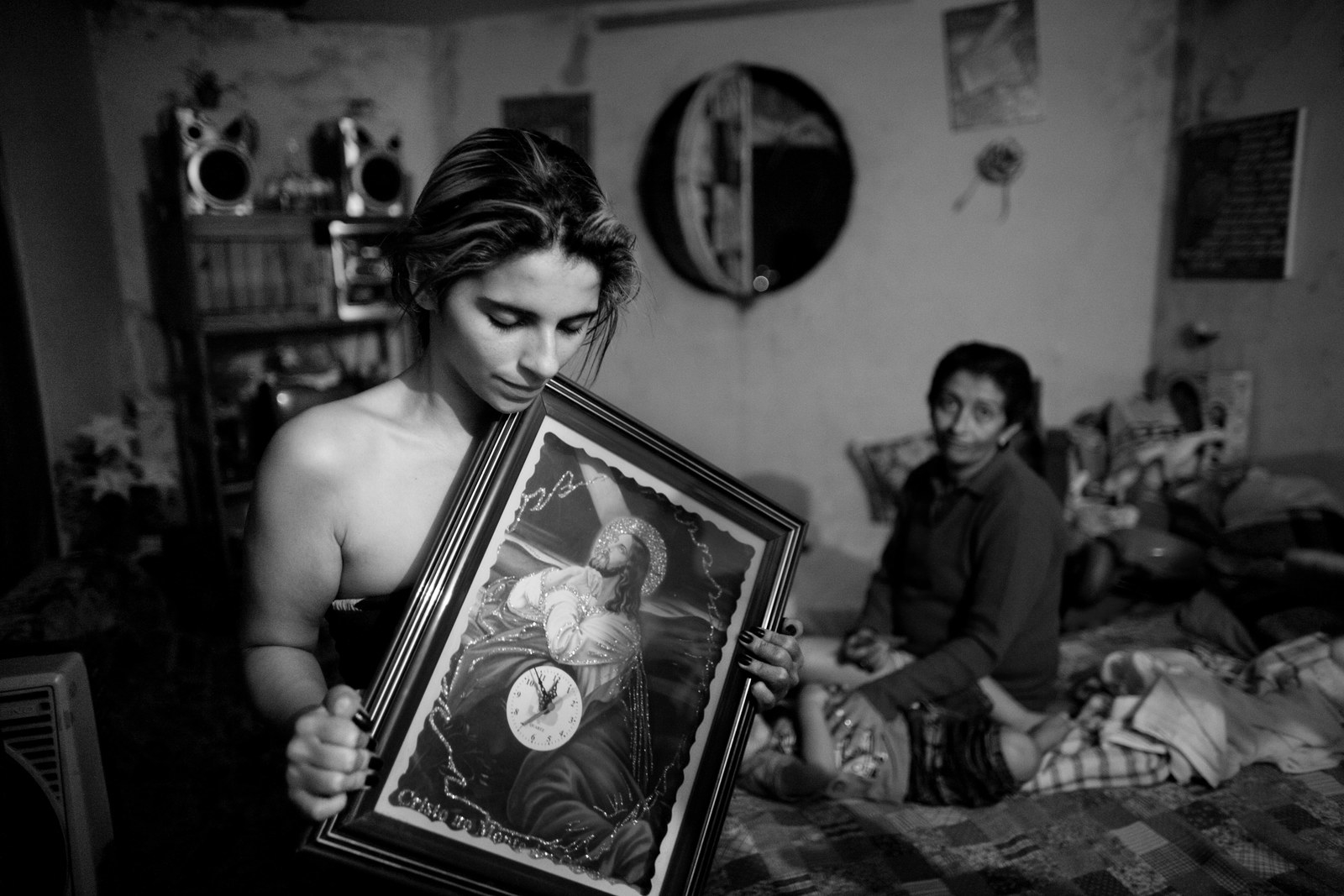
If you had to summarize this project, what would you say?
It is a portrait of my experience of a city that is beautiful, but has been ignored in many aspects. I am going to the ignored aspects, turning my lens on that. Life has a different meaning in those areas.
Someone born and raised in the medium-high classes ... has very different life perspectives and opportunities. Which makes the younger people born in the favelas sometimes go into the drug trafficking business because of segregation and very little opportunities for them due to the lack of basis services like education and health. So they would rather live shortly but intensely.
Are you planning on continuing this project?
I'm going to look at what will happen in the Olympic vacuum, what will happen when everyone leaves, how will society and politics react when we have to pay for all these facilities.
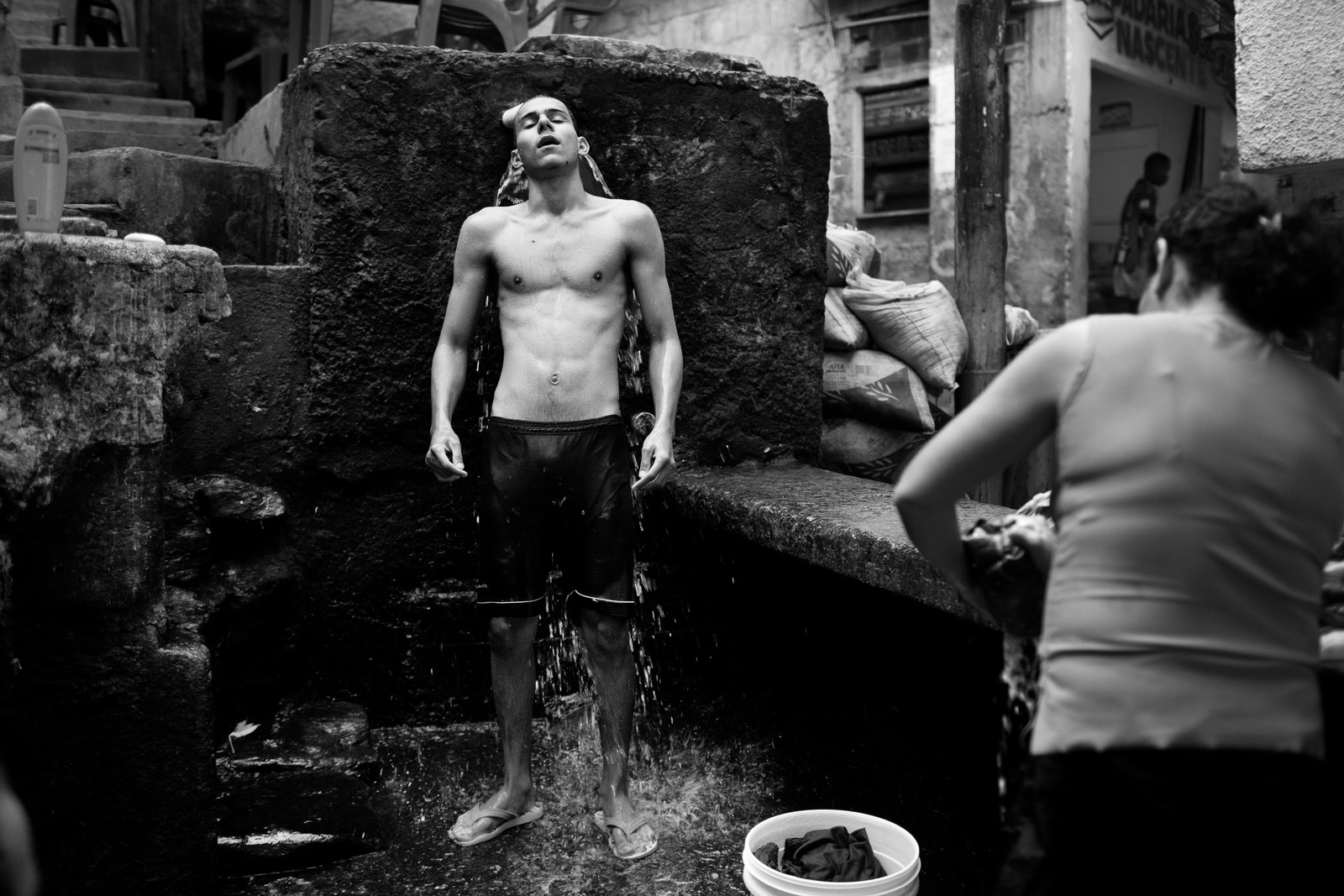
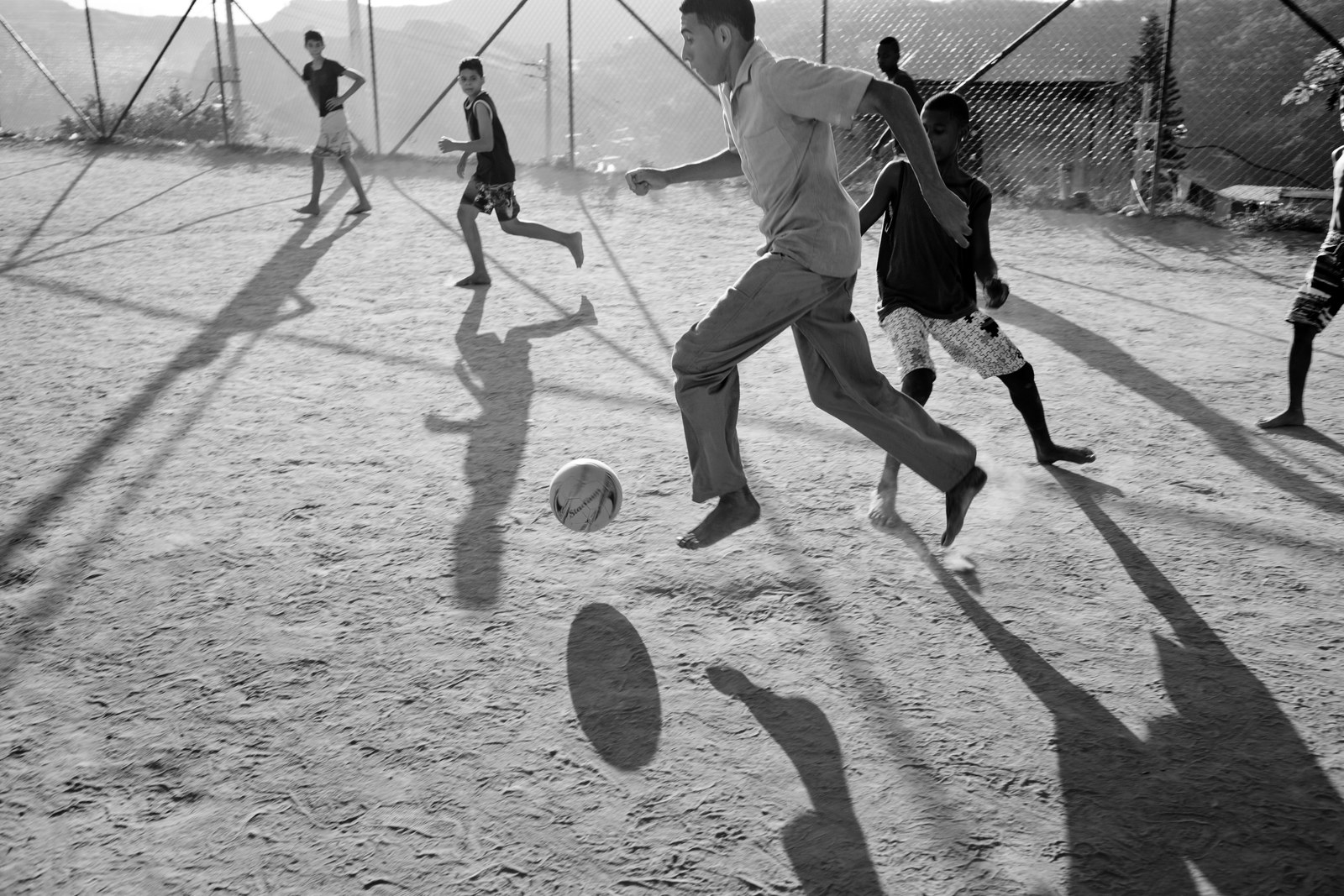
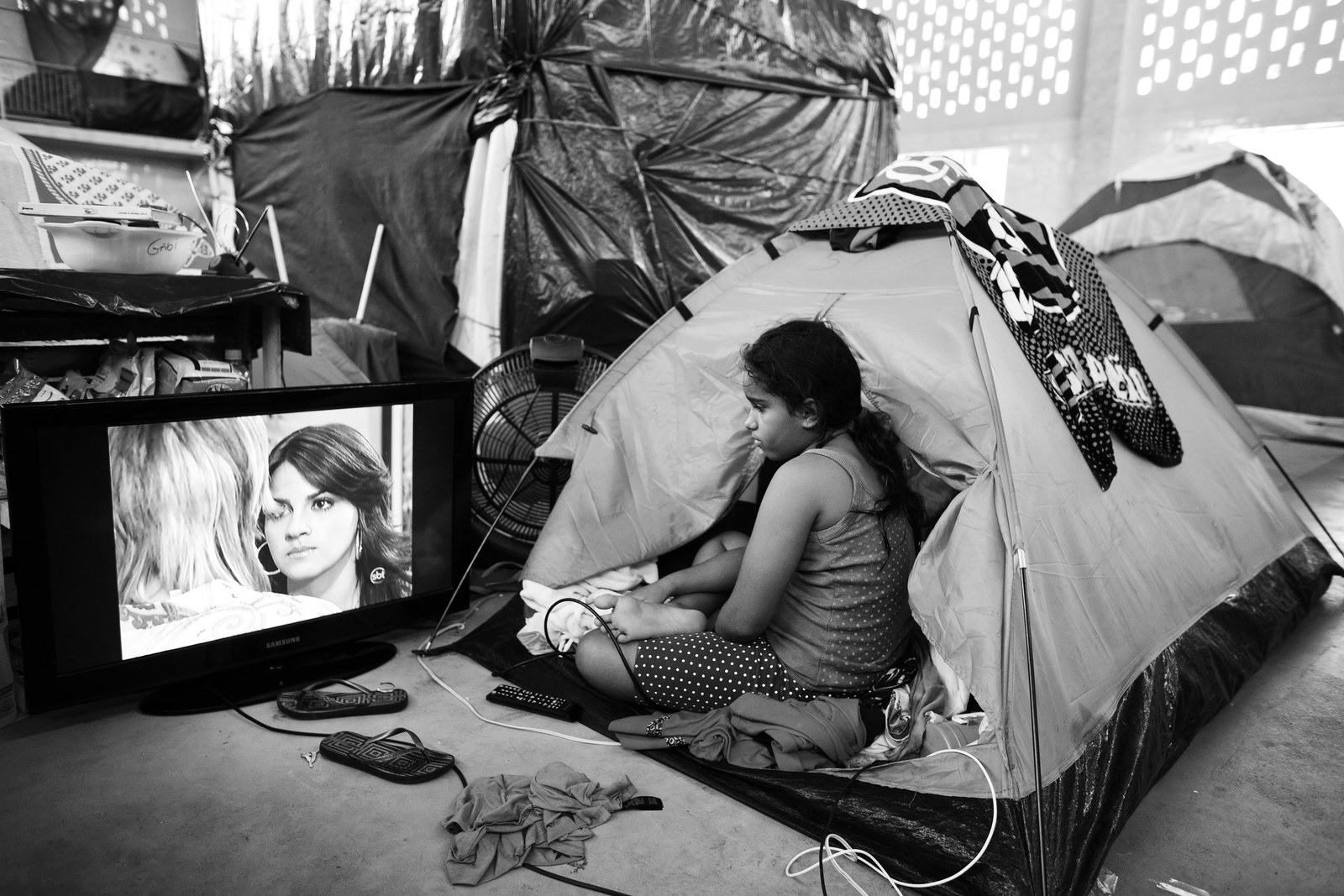
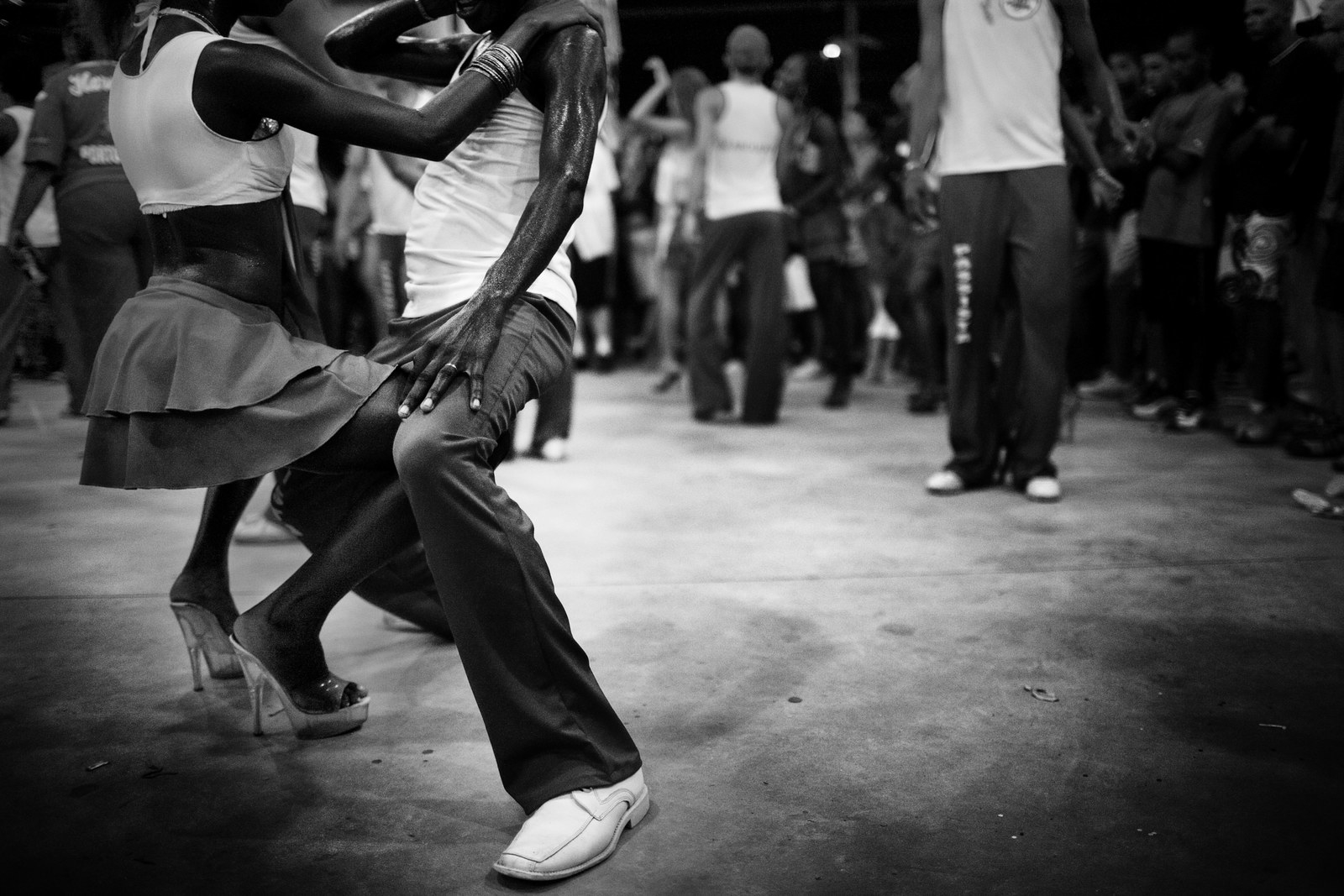
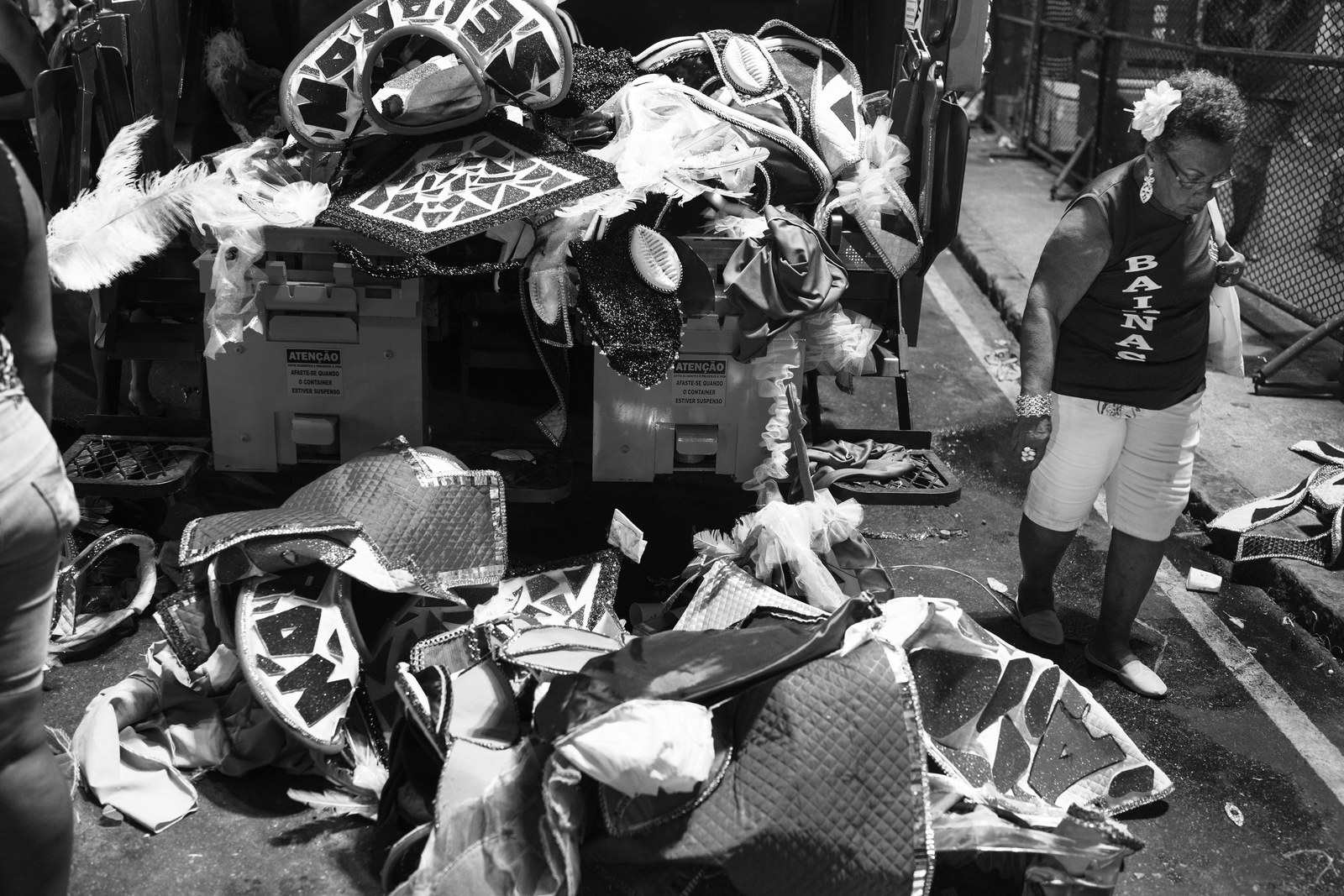
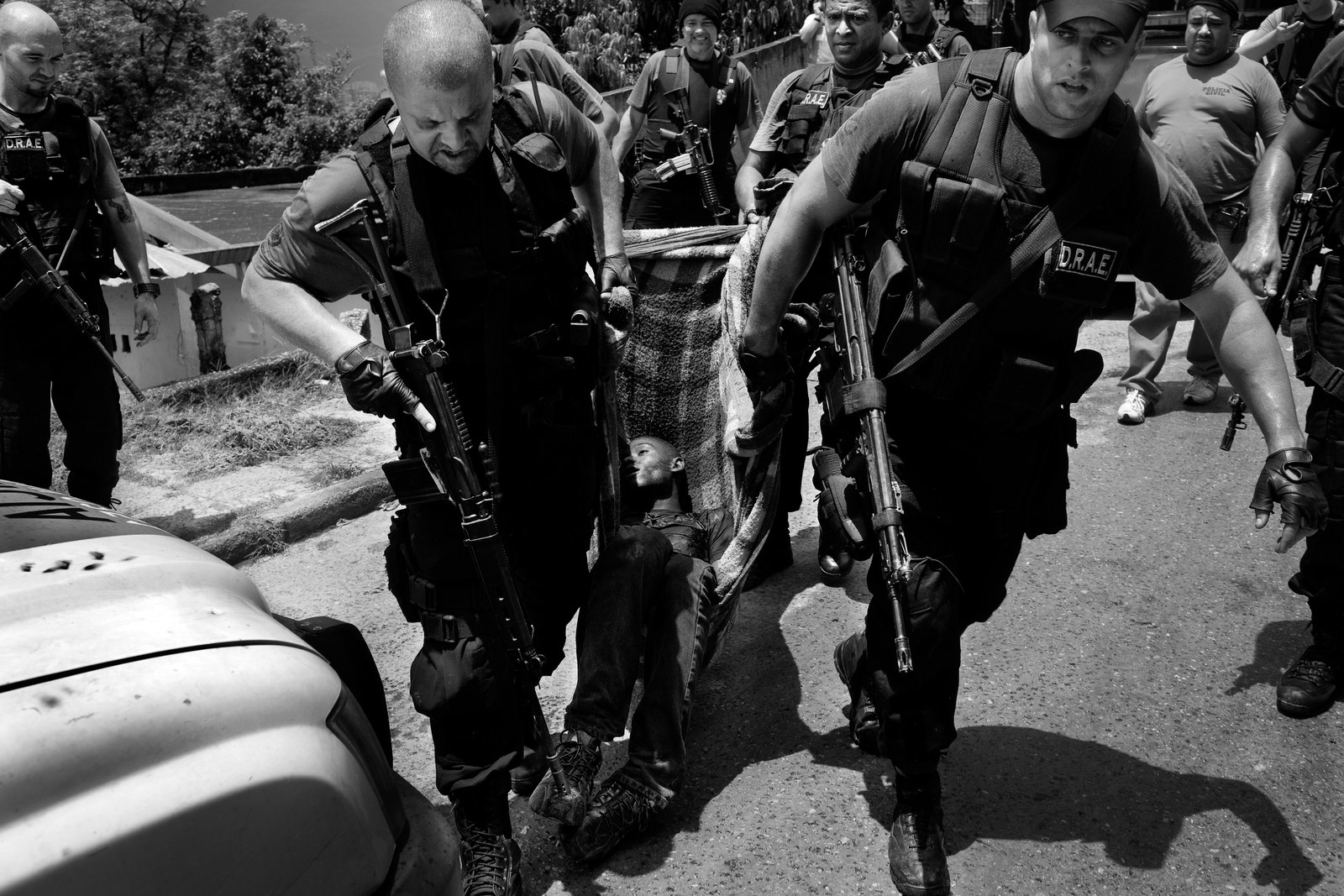
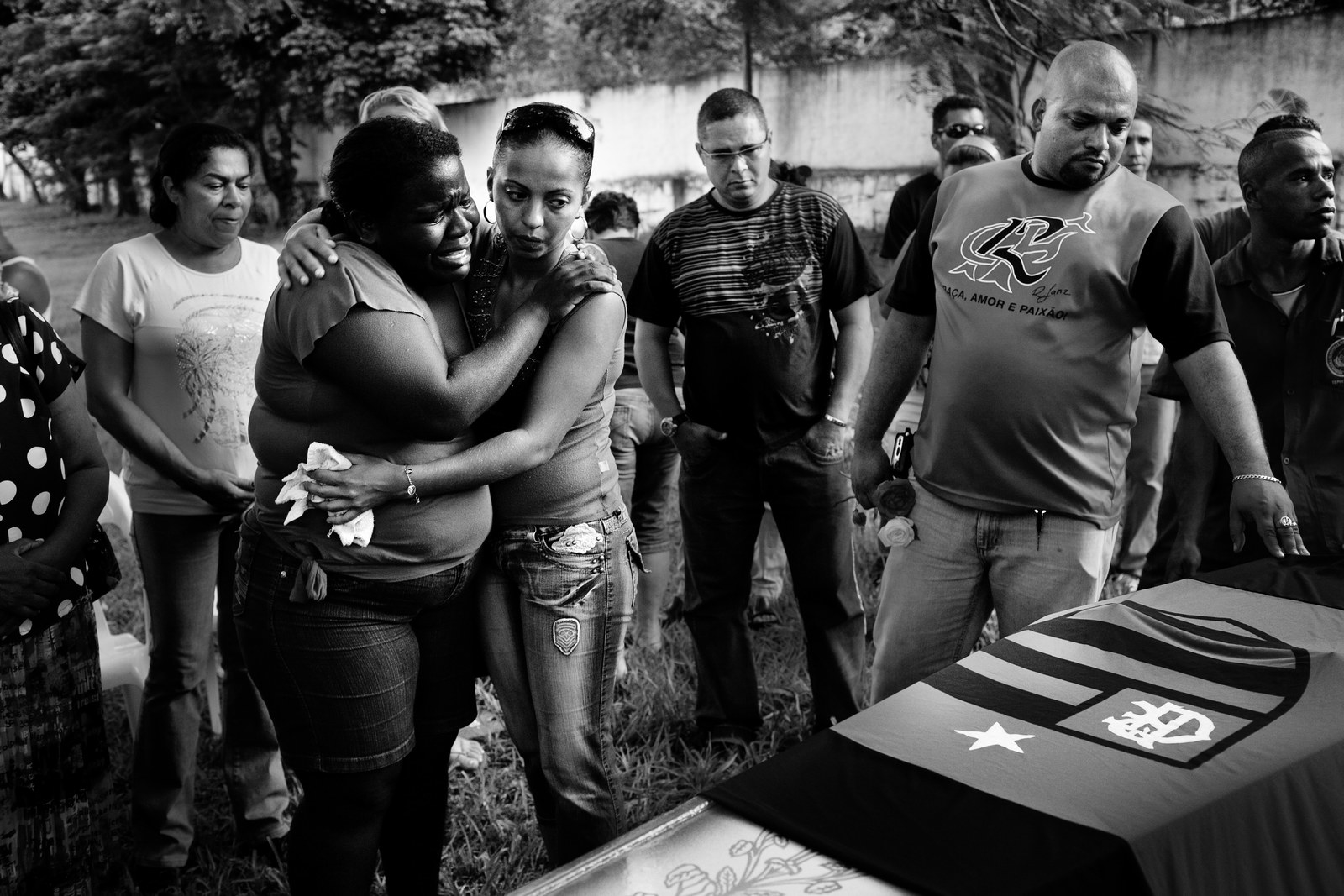
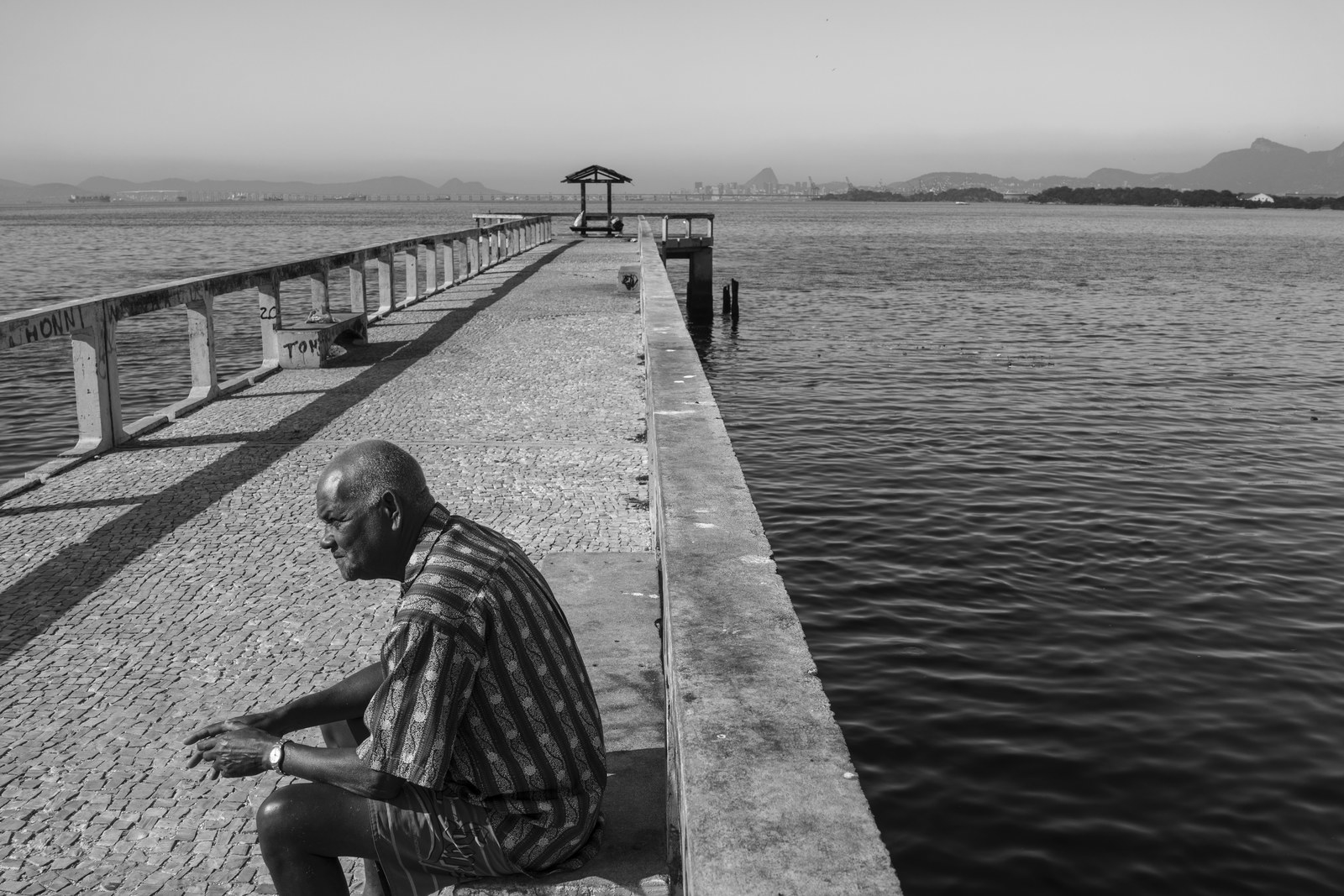
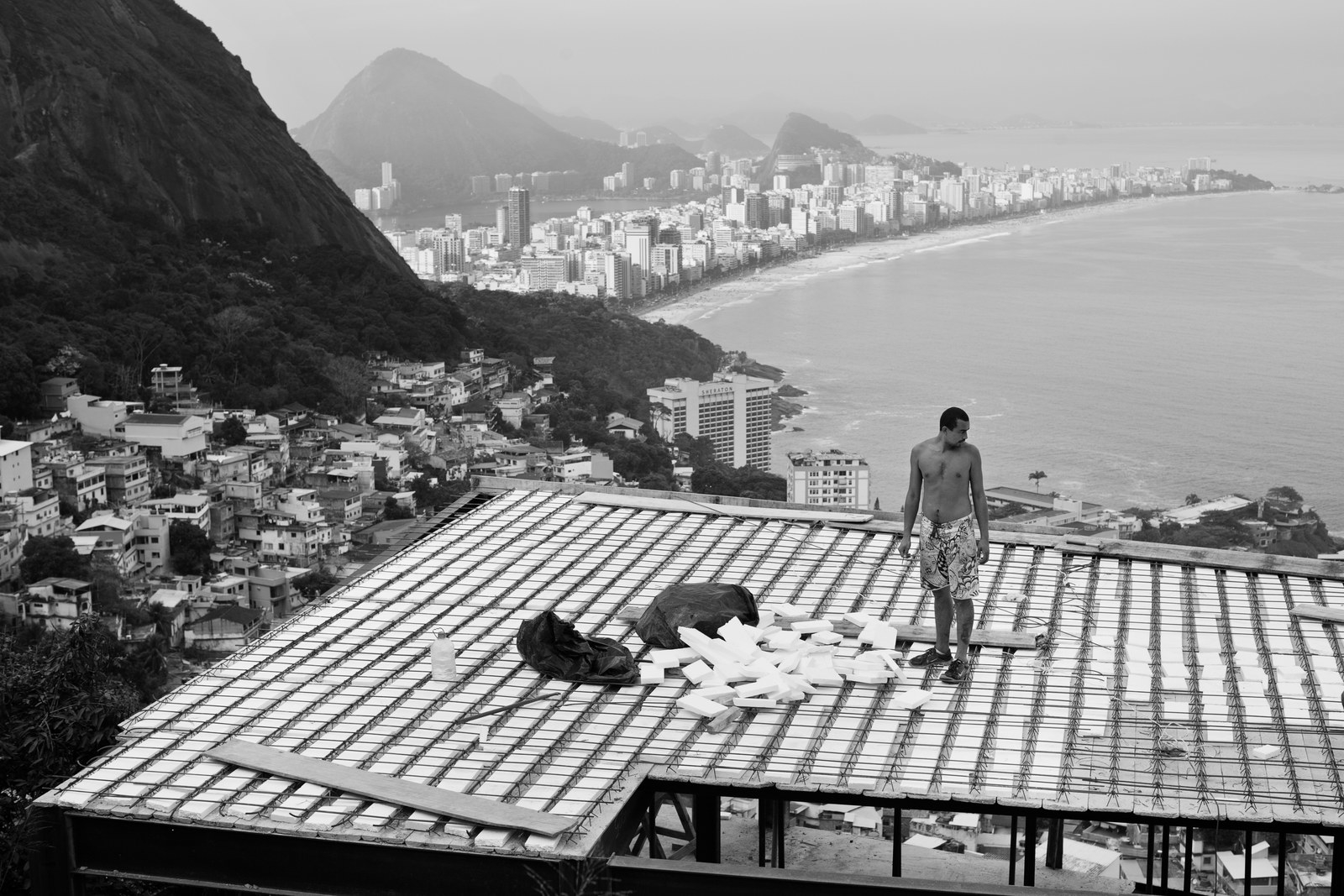
João Pina is a Portuguese photojournalist based in Brazil.
